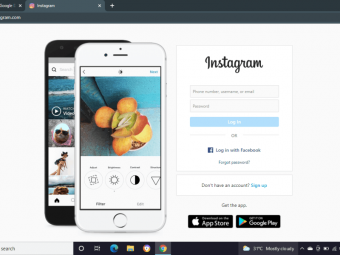12 Strategies For Dealing With Difficult People
Tags: Communication Skills
Learn how to confidently implement different strategies for dealing with difficult people.
Last updated 2022-01-10 | 4.4
- Utilize communication tactics to prevent the difficult situation before it starts.- Impliment a host of communication stratigies to take control of a difficult situation.
- Better articulate the reasoning behind the specific communication skills used in difficult situations.
What you'll learn
* Requirements
* You should not need any outside materials or programs to take this course.Description
I'm right there with you my friend. Difficult People Suck!
Let me ask a few questions.
Are you frustrated with difficult people?
Do you find difficult people to be challenging?
Who are some difficult people in your life? Your boss? Coworkers and customers? Your spouse/partner? Your kids?
Do you feel trapped?
Are you losing sleep? (This is a big healthy lifestyle red flag!)
Do you pause for a moment to take a deep breath before you go into work, or a meeting, just to prepare yourself for the onslaught you know you are going to deal with?
Have you ever looked at your paycheck to see if you have enough sick time built up so you just don't have to go into work today? How did you feel when you realized you didn't have enough time built up and you had to go it? Even sicker? I get it.
Again, I'm right there with you my friend.
I have lost entire weekends due to the overwhelming stress caused by that one difficult customer I'm scheduled to meet on Monday morning. So much stress I couldn't leave it behind, even for a few hours, to really enjoy time with my family. Does this sentence sound familiar? “Your here but you are not really here.” I get it.
Difficult people SUCK!
I have screamed at the top of my lungs, in my car, while back fisting the passenger seat headrest to the point I’ve ripped the skin off my knuckles.
I even purchased a new mattress and pillow thinking that it might actually help me sleep through the night. It didn’t work. I still didn’t sleep well and the stress just kept building.
I’ve purchased Melatonin (sleep aid) even when it wasn’t on a Buy One Get One sale. I can also find the bottle of Tylenol PM in complete darkness at 02:00 AM.
I've walked away from jobs, that I've loved, due to a boss being so unreasonably difficult I just couldn't put my job in front of my health any longer. I don’t know if you’ve ever experienced this, but there must be some sort of science that explains why the air instantly seems fresher the moment you choose to walk (or run) away from a toxic situation.
Difficult people are just unhealthy.
I’ve skipped meals because I was too stressed to eat which usually resulted in me hitting a drive-through just because “I just need something.” 40+ pounds later…”Well, this isn’t working for me.” I get it.
Difficult people have caused me to be physically sick. I've felt physical back pain because I was so stressed out and tense knowing that I was going to be dealing with difficult co-workers tomorrow.
Let me ask a couple more questions:
What would it feel like to sleep peacefully throughout the night?
Wouldn't it be great to have a few key strategies that make dealing with difficult people a lot easier?
What would it feel like to have control of the situation?
What would it feel like to be able to leave work behind and enjoy your evening, your weekend, or even your vacation?
What would it feel like to actually “Look forward to work tomorrow”?
What would it feel like to have the power to “Fire” that one difficult customer that takes up so much of your time, your thoughts, and your work?
What if dealing with difficult people actually becomes a fun game you become really good at playing?
Once I began to master these strategies, the air became fresher, my sleep improved, and I became healthier and happier.
By the end of this course, you will have 12 different strategies that will help you better deal with difficult people.
By mastering the strategies and tactics of this course you will be able to:
Improve your safety
Increase your overall level of professionalism
Reduce your stress level
Improve your morale
Decrease the number of complaints you may receive
Lower your personal liability
All of this adds up to a healthier and happier personal and professional life. This could mean greater productivity for you, employees, and fellow co-workers which would likely increase profitability. For example, what would your office be like if everyone just “got along” with one another?
This course is primarily a series of video lectures that outline the strategies. The lectures contain personal stories and real-life examples of how I've used these strategies and tactics in my career in law enforcement, customer service, sales, and life in general.
This course was designed specifically for individuals and employees, who work in a professional environment that is often unpleasant due to difficult co-workers, supervisors, customers and/or clients.
It’s about taking control of the situation instead of being controlled by the situation.
Students from all around the world (over 90 different countries - This just blows me away!) are studying the 12 Strategies and learning how to deal with difficult people.
I’m honored and humbled by those who have reached to me to share their personal success stories using these strategies. It’s heartwarming to know this course is really making a difference for so many people from around the world. Thank You
Please enjoy this course!
Who this course is for:
- Have you ever said, “No, that’s not what I meant.” Or “You heard me wrong.”? Then this course might be for you.
- This course is also best suited for professionals who work with difficult customers, sly coworkers, and angry bosses.
- This course has also been designed for business professionals (sales & customer service), medical personel, law enforcement, military,
- This course has also been designed for business professionals (sales & customer service), medical personel, law enforcement, military, and anybody that may deal with difficult and challenging people.
- This course is for those people who want or need to move into a conversation. This is about engaging and taking control of your communations. This is the elite way.
- If you desire a more passive laid back communications style, this course may not be for you.
- 12 Strategies for dealing with difficult people was designed for individuals and teams who experience difficult situations where professional communications is essential.
Course content
2 sections • 18 lectures
The who, what, when where and why information about this course. Preview 02:00
This course is learning and developing the 12 strategies for dealing with difficult people. In this lecture, you will learn the difference between a strategy and a tactic as it relates to communications with difficult people.
Who is this course for? Preview 03:15
If you are frustrated, upset and just get anxious when having to face difficult people, this course might be for you. If you are looking to take back control, not only of situations involving difficult people but taking control of you emotions and feelings. This is about giving you power.
This course was initially designed for professionals who are faced with difficult and challenging people, be it the boss, co-workers, customers or even family members.
Wouldn't it feel good to be in control?
Course Requirements Preview 08:25
Would you rather be considered elite or just okay? How about a star player or bench warmer? If you are ready to truly handle difficult people, on a level that many others feel is magical, it takes some effort. I don't want you to just watch this course...you won't get anything out of it. Just as you wouldn't expect to be the Super Bowl winning quarterback just by reading the playbook once and never attending practice, I don't expect that you will be a master of these skills by watching this course one time and never practicing these skills. It requires practice, drilling and rehearsing.
Why this is so important. Preview 07:08
I explain and provide real examples of the true importance of this course and why some of the communication skills in this course are so vital.
Goals of the course Preview 07:08
In this course, I share the 5 goals of this course. This is the "why" this course was designed. This is the "What's in it for you." Understanding these goals you will have a solid understanding of how these skills will benefit you on a personal and professional level.
Strategy 1 - Reaction vs Response Preview 06:46
What is the difference between a reaction and a response? In this course, you will learn not give difficult people what they are looking for. Instead, you will learn how to get them to play by your rules.
Strategy 2 - Different Communication Styles Preview 03:22
In this lecture, I stress the idea that not all people same and I provide you, in the added resources, ways to determine different communication styles and traits of an individual's. Often confused with “Personality Styles” I want to stress it’s more about communication styles than personality. Although a vital part of this course, this subject could be a series of courses in itself and in fact is. Entire businesses exist to teach individuals and organizations how to decode an individual's communication style, and they do a much better job than I would. This is why I share several external resources with you as I’m not going to reinvent the wheel here. Understanding how to “deal” with a specific style of person is key, it is also important to know how a specific individual’s communication style may respond to you "dealing" with them. Please take the time to review the links I share in the added resources. Again, I stress, it is important to not just watch something one time...you must practice, drill and rehearse. The more study you put into this section, the more of a master you will become.
Strategy 3 - Empathy vs Sympathy Preview 09:23
In this lecture, we discuss, the often confused, difference between empathy and sympathy. Which is most important when dealing with difficult people and why?
Strategy 4 -Personal Attacks - Hot Buttons Preview 10:37
This is a super powerful tactic to build a shield over your personal "Hot Button." You will learn how to protect yourself and not allow people to push your buttons. This allows you to remain in control of the situation. You won't give the difficult person the pleasure of knowing they pushed your button. You remain in control and you have the power.
Strategy 5 -Redirection Preview 03:14
Redirection is a key component in the martial arts. Instead of absorbing an opponent's punch or kick, we lightly move the energy off to the side allowing the force to pass us by. This lecture talks about how to redirect a persons words so you remain in control.
Strategy 6 -Focus on Action and Meaning Preview 02:47
Would you agree that when we are angry and upset we have occasionally said one thing but it wasn't what we meant to say? In this lecture, we learn how to focus on the meaning behind the words difficult people use.
Strategy 7 -Active Listening Preview 04:46
Do we learn more by talking or listening? In this lecture, we learn the importance of "Active Listening" and how to use this skill to learn what a difficult person really means as opposed to what they may actually be saying.
Strategy 8 - Communications Styles Preview 12:09
Would it be reasonable to state that not all people are the same and that each of us communicate differently? We are all different but there are 4 very basic communications styles. Often referred to as personality styles, I'm really most interested in helping you to determine how to best respond to a difficult persons own communication style. The downloadable pdf will give you more resources and will act as a tool for you to refer to.
Strategy 9 - Paraphrase Preview 07:06
In this lecture, we discuss one of my most used and powerful techniques in dealing with difficult people. Mastering the art of paraphrasing is "Key" to dealing with difficult people. When used correctly, paraphrasing will almost make you seem magical to others.
Strategy 10 - Questions Preview 06:56
The person who is asking the questions is in control of the conversation and in the driver's seat. Asking appropriate questions correctly, you drive the conversation and guide the difficult person from difficult to cooperative.
Strategy 11 - Getting rid of your ego Preview 05:04
By far one of the most difficult strategies and one of the most important strategies. Keeping your "Ego" out of the situation isn't easy, but it's vitally important when dealing with difficult people. They win when you "react" to their personal attacks on your ego. In this strategy, you'll learn how to keep your ego away from the situation allowing you to better handle difficult people.
Strategy 12 - When things go wrong Preview 07:02
Words don't work with everyone and there is a time to draw the line. In this strategy, you'll learn how to handle yourself to protect yourself. I'm not talking about physical self-defense, but more along the lines of professional self-defense. What to do when you've tried all the other techniques and nothing seemed to work.
Thank You - Please Review and share this course Preview 00:59
Thank you for your time, attention and energy. I believe that by mastering these strategies and tactics, you will be much better prepared to "Deal with Difficult People" as you go about your day. Please share your thoughts and ideas with me and let me know how I can improve this course. My goal is to add to and strengthen the material in this course so you can continue learning and improving to the point where dealing with difficult people almost becomes joyful and easy. It can be fun and super rewarding to tactically bring a super difficult person to the point of collaboration while you let them believe it was 100% their idea to do so. It's fun.








 This course includes:
This course includes:















